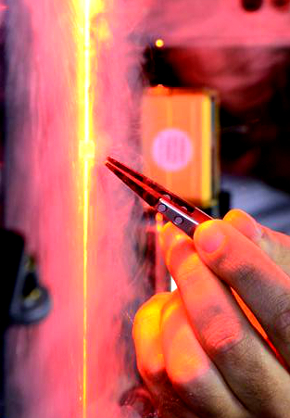Big support for uni reform

The Federal Government has announced the establishment of the Australian Tertiary Education Commission (ATEC), an independent body set to oversee significant reforms in the tertiary education sector.
This initiative is part of the Future Made in Australia policy and responds to the Australian Universities Accord, aiming to drive growth and address national skills needs through enhanced equity measures.
The ATEC is intended to harmonise the vocational education and training (VET) and university sectors, receiving $27.7 million over four years for this purpose.
This integration seeks to create seamless student pathways and streamline regulations for dual sector providers, fostering greater cooperation and efficiency.
Education Secretary Tony Cook will chair the Universities Accord implementation committee, which includes prominent academics and officials such as:
-
Professor David Lloyd (University of South Australia)
-
Professor Verity Firth (University of New South Wales)
-
Professor Stephen Duckett (University of Melbourne)
-
Professor Julia Horne (University of Sydney)
-
Professor Tom Calma AO (Kungarakan Elder and 2023 Senior Australian of the Year)
-
Professor Barney Glover AO (Jobs and Skills Australia)
-
Jenny Dodd (CEO, TAFE Directors Australia)
-
Natalie James (Department of Employment and Workplace Relations, ex-officio member)
-
Ben Rimmer (Department of Education, ex-officio member)
The latest budget includes multiple measures aimed at improving access to education for students from lower socio-economic backgrounds.
One such measure is a $1 million inquiry into racism in the universities sector. Led by Race Discrimination Commissioner Giridharan Sivaraman, the inquiry will address the prevalence and impact of racism, with an interim report expected by December 31, 2024, and a final report by June 30, 2025.
In a bid to increase the skilled workforce, the budget sets a target of 80 per cent of the workforce holding a TAFE or university qualification by 2050.
Measures to achieve this include reforms to the Higher Education Loan Program (HELP), which will now have its indexation capped at the lower of the Consumer Price Index (CPI) or the Wage Price Index (WPI).
This change is expected to relieve approximately $3 billion in student debt for over three million Australians, retroactive to June 1, 2023.
Furthermore, the budget allocates $427.4 million for a Commonwealth Prac Payment, providing $319.50 per week to over 73,000 students in high-demand professions such as nursing, midwifery, and social work.
This support aims to mitigate placement poverty, a barrier for students from disadvantaged backgrounds.
Charles Darwin University will receive $24.6 million over four years starting from 2024-25, with an additional $72.7 million from 2028 to 2035, to establish a new medical school in the Northern Territory.
This initiative will introduce 40 new commencing medical students per year from 2026, addressing healthcare needs in the region.
To widen access to university education, the government will invest $350.3 million in fee-free bridging courses, projected to increase participation by 40 per cent by 2030 and double by 2040.
These courses will provide alternative entry pathways, ensuring more Australians have the opportunity to pursue higher education.
“Under Bob Hawke and Paul Keating, the number of Australians finishing high school jumped from around 40 per cent to almost 80 per cent. That was nation-changing. Now we have to take the next step,” Clare said.







 Print
Print